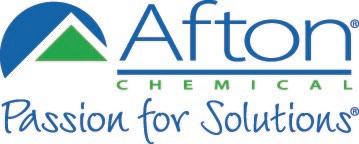PRODUCT STEWARDSHIP SUMMARY

Phenol, 2-[[[3-(dimethylamino)propyl]amino]methyl]-, 4polyisobutylene derivatives

Introduction
Gasoline performance additives (GPA) are made up of many functional components for improving performance. Products are formulated to give each customer the performance benefits for their unique offering while covering needed performance for the ever-changing engine hardware, regulatory requirements, and fuel property changes. The key component of GPA packages is the detergent system. Phenol, 2-[[[3-(dimethylamino)propyl]amino]methyl]-, 4polyisobutylene derivatives are a Mannich detergent chemistry. Mannich detergent chemistries are commonly used in gasoline to remove and prevent engine deposits from forming.
Uses and Advantages
Over time, incomplete fuel combustion and the presence of certain impurities in the fuel can lead to deposit buildup on valves, injectors, and combustion chamber areas. These deposits can result in lost power and reduced fuel economy. Detergents work to both clean up these deposits and, with continued use, keep them from coming back, restoring lost power and fuel economy. Mannich detergent chemistries, such as Phenol, 2-[[[3-(dimethylamino)propyl]amino]methyl]-, 4-polyisobutylene derivatives, have been used for decades to protect engines operated at high temperatures by removing and preventing carbon-like deposits from forming. They also act as dispersants keeping insoluble materials in suspension. Detergents are a critical tool for keeping engines clean, maintaining fuel efficiency, and reducing emissions.
Health Effects
This chemistry has undergone significant testing to determine the health and environmental effects. It is of low concern for acute, oral, or dermal toxicity. The substance is not irritating to the skin or eyes, but it is a skin sensitizer
The substance is not expected to cause mutagenic or reproductive/developmental effects based on test data. The substance may be harmful after prolonged exposure to high doses, with the primary effects occurring to the immune system in animals.
Environmental Effects

Phenol, 2-[[[3-(dimethylamino)propyl]amino]methyl]-, 4-polyisobutylene is toxic to aquatic life. It is persistent in the environment. Some low molecular weight oligomers, which represent a small fraction of the total polymer, may be considered bioaccumulative in certain jurisdictions However, there is no evidence to show that the entire polymer is bioaccumulative.
Exposure
For industrial workers, the most common route of exposure is via skin contact during manufacturing and processing. The extent of exposure can depend on the type of manufacturing system (open or enclosed), adequacy of engineering controls, material handling practices, and use of personal protective equipment. Handling at elevated temperatures or generating vapors or mists can increase the significance of inhalation exposure.
Consumers are most commonly exposed to the substance when they purchase gasoline. As such, consumers are only potentially exposed to very low (ppm) levels of the Phenol, 2-[[[3-(dimethylamino)propyl]amino]methyl]-, 4polyisobutylene derivatives through skin contact with the treated gasoline. Afton does sell a limited number of additive packages, which are available to consumers through aftermarket sales.
Environmental exposure is expected to be minimal as the polymer is only manufactured and blended at industrial sites, where emissions are strictly controlled. Once blended into gasoline, it is also the case that discharges from facilities used for distribution and sale are regulated and controlled. Ultimately the polymer burns as a component of the fuel
Risk Management
Phenol, 2-[[[3-(dimethylamino)propyl]amino]methyl]-, 4-polyisobutylene derivatives is typically sold as a component in fuel additive packages. The health and environmental risks of these products can vary depending on the product as well as the conditions encountered during their use. Information on the safe handling of these products is provided to users through the safety data sheets. Appropriate engineering, administrative controls (work practices), and personal protective equipment are recommended to control exposures during manufacture and use, as well as to manage the risk associated with the flammability of these products.
Products intended for aftermarket consumer use are labeled in accordance with local consumer labeling requirements. Additionally, Afton limits the sale and concentration of certain components in aftermarket products to minimize risk to the consumer.
Conclusion
Gasoline detergent additives such as Phenol, 2-[[[3-(dimethylamino)propyl]amino]methyl]-, 4-polyisobutylene derivatives provide many benefits to the fuel marketer and the vehicle operator, including helping to burn fuel more efficiently. This, in turn, improves fuel economy and reduces emissions. Afton is committed to providing its customers with the information they need to responsibly manage any safety, health, and environmental risks associated with the intended use of Afton products.
For additional information, contact us at: Afton Chemical Corporation

• 500 Spring Street • Richmond VA 23219
• 804-788-5800
This information and these recommendations are offered in good faith and believed to be correct as of the date hereof. Information and recommendations are supplied upon the condition that the recipients will make their own decision as to safety and suitability for their purposes. No representations or warranties, either expressed or implied, of merchantability, fitness for a particular purpose, or of any other nature, are made with respect to the product or the information and recommendations. Afton makes no representation as to completeness or accuracy. In no event will Afton be responsible for damages of any nature whatsoever resulting from the use or reliance upon the information and recommendations.
© 2023. Afton Chemical Corporation is a wholly-owned subsidiary of NewMarket Corporation (NYSE: NEU). www.aftonchemical.com

